Skip to content
 Food and beverage brands are under growing pressure to replace synthetic dyes and preservatives with clean-label, non-synthetic, and recognizable ingredients. In particular, synthetic antioxidants like Butylated hydroxyanisole (BHA) and Butylated hydroxytoluene (BHT) are receiving increased scrutiny from consumers and regulators. As a result, demand is rising for natural, sustainable ingredients that are both functional and […]
Food and beverage brands are under growing pressure to replace synthetic dyes and preservatives with clean-label, non-synthetic, and recognizable ingredients. In particular, synthetic antioxidants like Butylated hydroxyanisole (BHA) and Butylated hydroxytoluene (BHT) are receiving increased scrutiny from consumers and regulators. As a result, demand is rising for natural, sustainable ingredients that are both functional and […]
 Ayana Bio opens new laboratory to commercialise cultivated ingredients – July saw plant cell technology company Ayana Bio announce the opening of a new lab situated in Boston’s Seaport district in Massachusetts, US.
Ayana Bio opens new laboratory to commercialise cultivated ingredients – July saw plant cell technology company Ayana Bio announce the opening of a new lab situated in Boston’s Seaport district in Massachusetts, US.
 When it comes to sleep, many people reach for fast fixes like Ambien. But a growing body of evidence shows that sedative drugs may be doing more harm than good, especially for the brain. A 2024 study from the University of Rochester Medical Center found that Ambien (zolpidem) disrupts the brain’s glymphatic system. This system […]
When it comes to sleep, many people reach for fast fixes like Ambien. But a growing body of evidence shows that sedative drugs may be doing more harm than good, especially for the brain. A 2024 study from the University of Rochester Medical Center found that Ambien (zolpidem) disrupts the brain’s glymphatic system. This system […]
 Plant cell tech firm Ayana Bio is pledging US$3 million to accelerate cacao bioactive production using cellular cultivation, part of a strategy to boost efforts in curbing the many challenges plaguing the cacao industry, such as climate change, deforestation and child labor.
Plant cell tech firm Ayana Bio is pledging US$3 million to accelerate cacao bioactive production using cellular cultivation, part of a strategy to boost efforts in curbing the many challenges plaguing the cacao industry, such as climate change, deforestation and child labor.

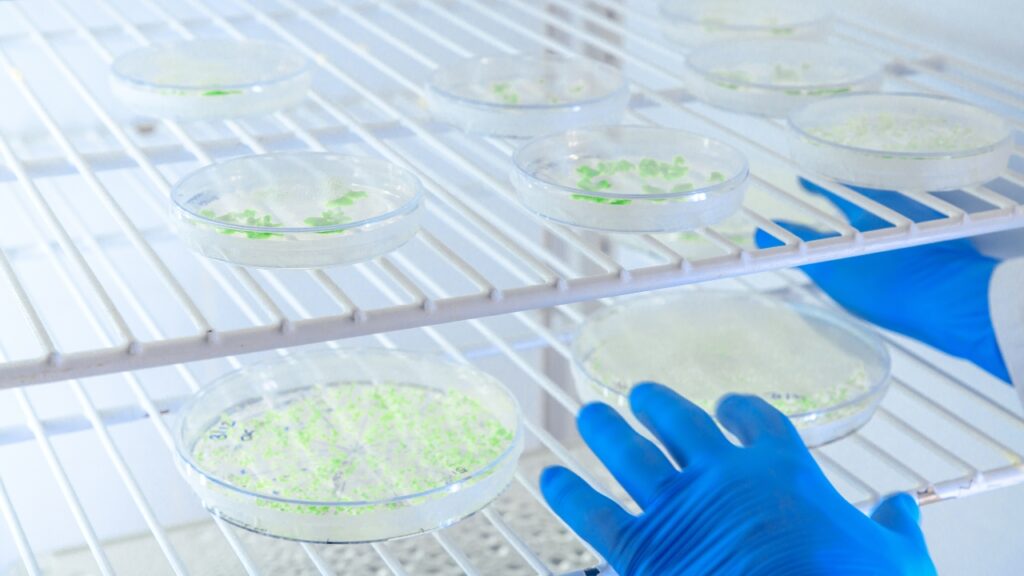 When we talk about plant cell culture and its promise to transform how we source bioactive ingredients, we often focus on the end products—potent antioxidants, immune-supportive polyphenols, and adaptogens with consistent potency and purity. However, behind every breakthrough plant cell culture ingredient is an invisible yet essential player: the culture medium. At Ayana Bio, we […]
When we talk about plant cell culture and its promise to transform how we source bioactive ingredients, we often focus on the end products—potent antioxidants, immune-supportive polyphenols, and adaptogens with consistent potency and purity. However, behind every breakthrough plant cell culture ingredient is an invisible yet essential player: the culture medium. At Ayana Bio, we […]
 For centuries, Salvia officinalis—commonly known as sage—has been used as a traditional medicine to boost memory, reduce inflammation, and support overall wellness. Scientific research confirms that dry sage leaf powder can enhance memory, focus, and mood. These benefits make sage a compelling option for cognitive support in foods, beverages, and dietary supplements. Sage is also […]
For centuries, Salvia officinalis—commonly known as sage—has been used as a traditional medicine to boost memory, reduce inflammation, and support overall wellness. Scientific research confirms that dry sage leaf powder can enhance memory, focus, and mood. These benefits make sage a compelling option for cognitive support in foods, beverages, and dietary supplements. Sage is also […]
 Rose hips—the small, vibrant fruits of the dog rose (Rosa canina)—have supported immune health and overall wellness for centuries across Europe, Asia, and the Americas. The awareness of dog rose’s health benefits surged during World War II, when the British government launched a nationwide effort to collect wild rose hips as a substitute for scarce […]
Rose hips—the small, vibrant fruits of the dog rose (Rosa canina)—have supported immune health and overall wellness for centuries across Europe, Asia, and the Americas. The awareness of dog rose’s health benefits surged during World War II, when the British government launched a nationwide effort to collect wild rose hips as a substitute for scarce […]

 Echinacea purpurea, also known as purple coneflower, is one of the most recognized and widely used botanical ingredients in the world for immune support. Indigenous communities have used this natural botanical ingredient, native to North America, to treat various ailments, from infections to inflammation. Today, it’s a staple in the global supplement market, known for its […]
Echinacea purpurea, also known as purple coneflower, is one of the most recognized and widely used botanical ingredients in the world for immune support. Indigenous communities have used this natural botanical ingredient, native to North America, to treat various ailments, from infections to inflammation. Today, it’s a staple in the global supplement market, known for its […]
 Visit Ayana Bio at the IFT First 2025, Chicago, July 13-16, 2025 South Building, Start Up Pavilion Booth S3470V
Visit Ayana Bio at the IFT First 2025, Chicago, July 13-16, 2025 South Building, Start Up Pavilion Booth S3470V
 Plant cell sage and lemon balm are a natural way to support stress relief and cognitive health benefits. Used in traditional medicine for centuries, sage and lemon balm are recognized as both nootropics and adaptogens. They are popular ingredients in functional foods, supplements, and wellness products. However, conventional supply chains for sage and lemon balm […]
Plant cell sage and lemon balm are a natural way to support stress relief and cognitive health benefits. Used in traditional medicine for centuries, sage and lemon balm are recognized as both nootropics and adaptogens. They are popular ingredients in functional foods, supplements, and wellness products. However, conventional supply chains for sage and lemon balm […]
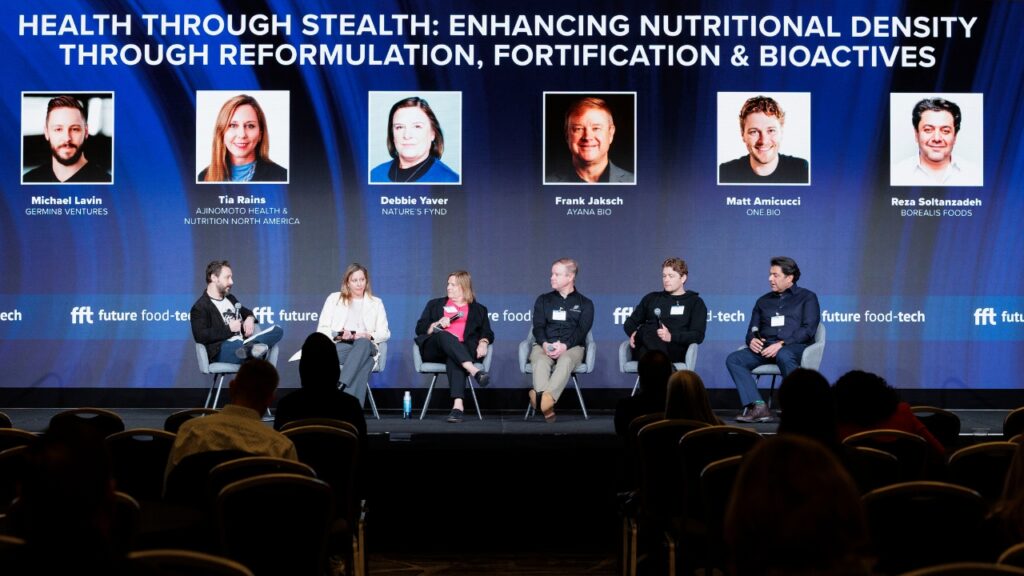 The Future Food-Tech summit in San Francisco (March 13-14) brought together industry leaders, entrepreneurs, and researchers to discuss the future of food innovation. While many of the conversations reinforced known trends—such as the demand for more sustainable food systems, ingredient innovation, and the power of AI to accelerate R&D—this year’s event surfaced new insights and […]
The Future Food-Tech summit in San Francisco (March 13-14) brought together industry leaders, entrepreneurs, and researchers to discuss the future of food innovation. While many of the conversations reinforced known trends—such as the demand for more sustainable food systems, ingredient innovation, and the power of AI to accelerate R&D—this year’s event surfaced new insights and […]
 Saffron, often referred to as “red gold,” is one of the most prized spices in the world. Saffron is valued not just for its unique aroma and flavor used in culinary, nutraceutical, and cosmetic applications, but also for its powerful bioactive ingredients. From ancient traditions to modern wellness formulations, saffron’s bioactives (e.g., crocin, picrocrocin, and […]
Saffron, often referred to as “red gold,” is one of the most prized spices in the world. Saffron is valued not just for its unique aroma and flavor used in culinary, nutraceutical, and cosmetic applications, but also for its powerful bioactive ingredients. From ancient traditions to modern wellness formulations, saffron’s bioactives (e.g., crocin, picrocrocin, and […]
 Ayana Bio opens new laboratory to commercialise cultivated ingredients – July saw plant cell technology company Ayana Bio announce the opening of a new lab situated in Boston’s Seaport district in Massachusetts, US.
Ayana Bio opens new laboratory to commercialise cultivated ingredients – July saw plant cell technology company Ayana Bio announce the opening of a new lab situated in Boston’s Seaport district in Massachusetts, US.

 The nutrient density of crops is declining. Climate change and intensive agricultural practices are reshaping food production, leading to crops that are less nutritious than those of past decades. Industrial agriculture, focused on producing larger and more visually appealing fruits and vegetables, has further accelerated this decline. The challenge now is clear: How do we […]
The nutrient density of crops is declining. Climate change and intensive agricultural practices are reshaping food production, leading to crops that are less nutritious than those of past decades. Industrial agriculture, focused on producing larger and more visually appealing fruits and vegetables, has further accelerated this decline. The challenge now is clear: How do we […]
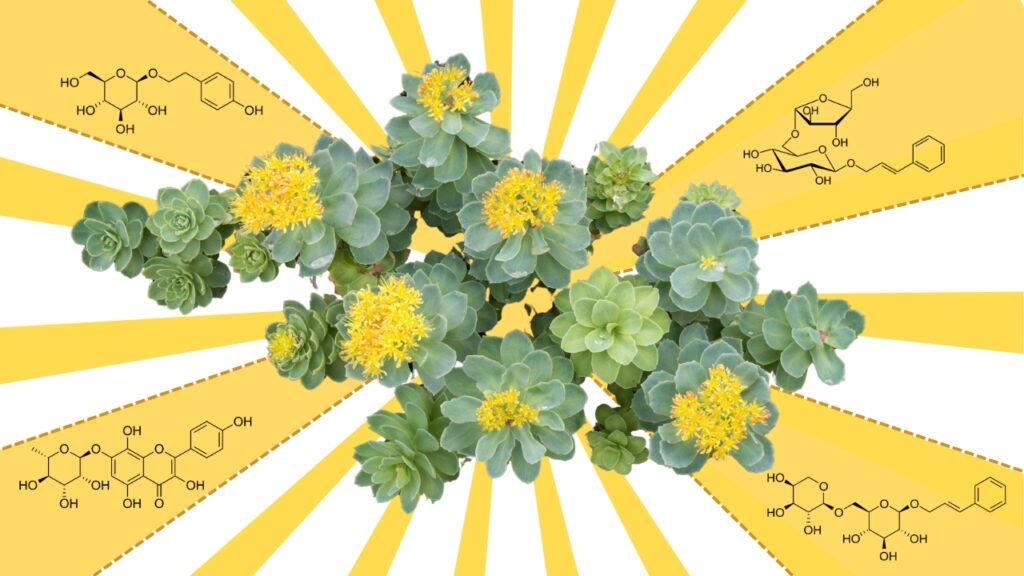 Plant cell-derived bioactives that improve health and wellness have taken center stage in the dietary supplement and food and beverage industries. The true power of these natural compounds lies not in a single, isolated molecule but in their collective synergy. This phenomenon, known as the entourage effect, emphasizes how consuming bioactives in their natural, full-spectrum […]
Plant cell-derived bioactives that improve health and wellness have taken center stage in the dietary supplement and food and beverage industries. The true power of these natural compounds lies not in a single, isolated molecule but in their collective synergy. This phenomenon, known as the entourage effect, emphasizes how consuming bioactives in their natural, full-spectrum […]
 Visit Ayana Bio at the Future Food-Tech, San Francisco, March 13-14, 2025 Come to see Frank Jaksch, Ayana Bio’s CEO, speak on the panel: Health Through Stealth: Enhancing Nutritional Density through Reformulation, Fortification & Bioactives Friday, March 14, 9:45 – 10:30
Visit Ayana Bio at the Future Food-Tech, San Francisco, March 13-14, 2025 Come to see Frank Jaksch, Ayana Bio’s CEO, speak on the panel: Health Through Stealth: Enhancing Nutritional Density through Reformulation, Fortification & Bioactives Friday, March 14, 9:45 – 10:30
 Ayana Bio opens new laboratory to commercialise cultivated ingredients – July saw plant cell technology company Ayana Bio announce the opening of a new lab situated in Boston’s Seaport district in Massachusetts, US.
Ayana Bio opens new laboratory to commercialise cultivated ingredients – July saw plant cell technology company Ayana Bio announce the opening of a new lab situated in Boston’s Seaport district in Massachusetts, US.
 The dietary supplement industry is experiencing significant growth fueled by a surge in consumer demand for high-quality, sustainable, and nutrient-rich products. The US dietary supplement market was valued at $53.58 billion in 2023 and is projected to grow at a compound annual growth rate (CAGR) of 5.7% over the next five years as consumers increasingly […]
The dietary supplement industry is experiencing significant growth fueled by a surge in consumer demand for high-quality, sustainable, and nutrient-rich products. The US dietary supplement market was valued at $53.58 billion in 2023 and is projected to grow at a compound annual growth rate (CAGR) of 5.7% over the next five years as consumers increasingly […]
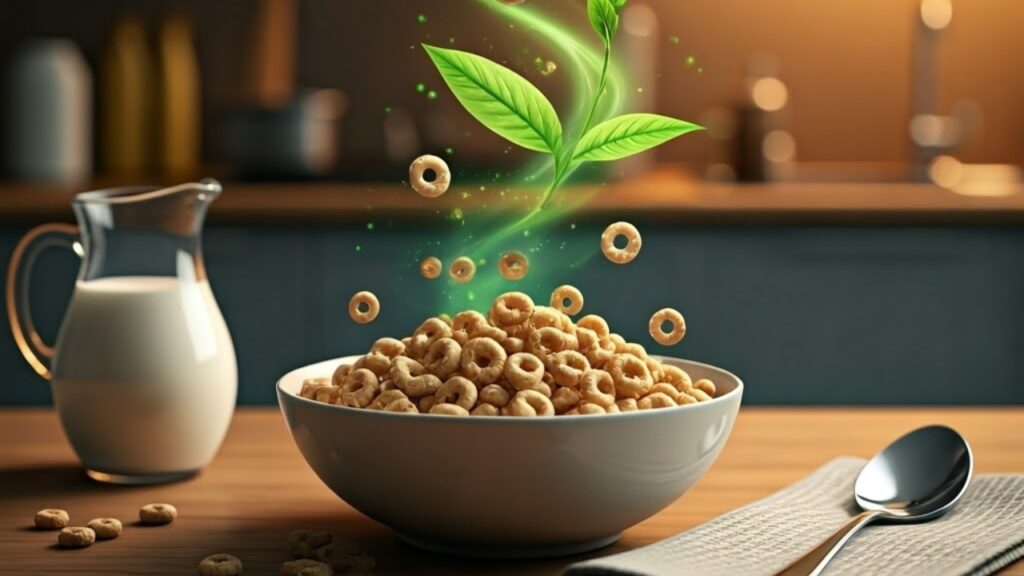 Ultra-processed foods (UPFs) dominate global diets and account for 57% of daily calories consumed by the average American, according to The British Medical Journal. The popularity of these highly processed foods can be attributed to their convenience, affordability, and extended shelf life. But UPFs often lack essential nutrients and are linked with health issues such […]
Ultra-processed foods (UPFs) dominate global diets and account for 57% of daily calories consumed by the average American, according to The British Medical Journal. The popularity of these highly processed foods can be attributed to their convenience, affordability, and extended shelf life. But UPFs often lack essential nutrients and are linked with health issues such […]

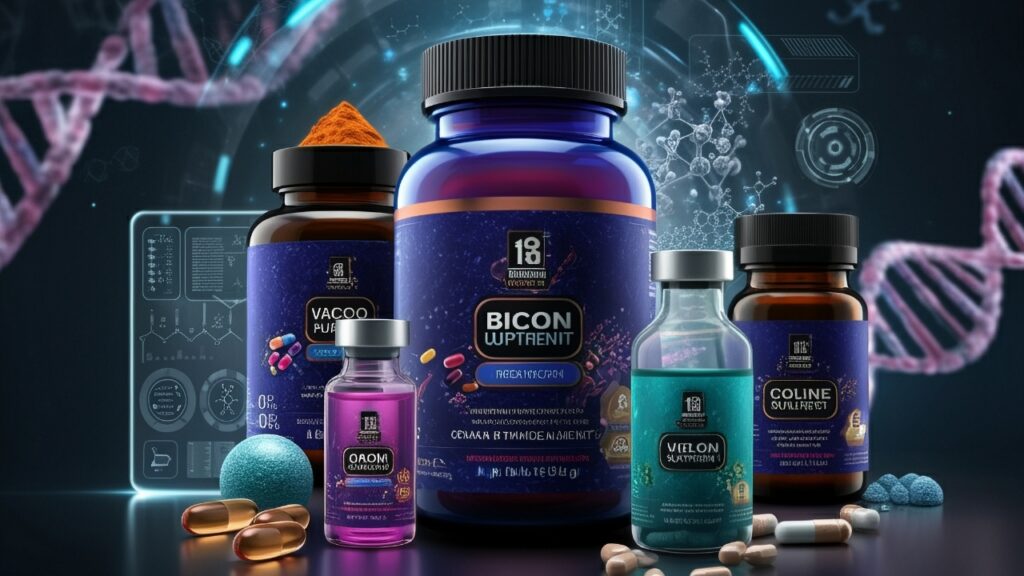 Consumers are demanding ethically sourced nutraceuticals: products that promote health and wellness without harming growers or the environment. As such, the nutraceutical industry has faced increasing pressure to adopt sustainable practices. Companies that prioritize sustainability— through ethical sourcing, green production, and advanced technologies—stand out in this competitive and evolving market. What Are Nutraceuticals? Nutraceuticals are […]
Consumers are demanding ethically sourced nutraceuticals: products that promote health and wellness without harming growers or the environment. As such, the nutraceutical industry has faced increasing pressure to adopt sustainable practices. Companies that prioritize sustainability— through ethical sourcing, green production, and advanced technologies—stand out in this competitive and evolving market. What Are Nutraceuticals? Nutraceuticals are […]
 Ayana Bio opens new laboratory to commercialise cultivated ingredients – July saw plant cell technology company Ayana Bio announce the opening of a new lab situated in Boston’s Seaport district in Massachusetts, US.
Ayana Bio opens new laboratory to commercialise cultivated ingredients – July saw plant cell technology company Ayana Bio announce the opening of a new lab situated in Boston’s Seaport district in Massachusetts, US.
 Companies are turning to more advanced production methods as the demand for sustainable, unadulterated, and consistent botanical ingredients grows. Plant cell cultivation and precision fermentation have emerged as leading technologies, each with unique benefits. However, plant cell culture stands out for its key advantages, including the ability to deliver full-spectrum bioactives in a more sustainable […]
Companies are turning to more advanced production methods as the demand for sustainable, unadulterated, and consistent botanical ingredients grows. Plant cell cultivation and precision fermentation have emerged as leading technologies, each with unique benefits. However, plant cell culture stands out for its key advantages, including the ability to deliver full-spectrum bioactives in a more sustainable […]
 Ayana Bio, the plant cell technology company dedicated to creating sustainable bioactives for consumer products, has received a grant from the National Center for Complementary and Integrative Health (NCCIH), part of the National Institutes of Health (NIH), to support Ayana Bio’s research into the production of saffron’s neuroprotective bioactives through plant cell cultivation.
Ayana Bio, the plant cell technology company dedicated to creating sustainable bioactives for consumer products, has received a grant from the National Center for Complementary and Integrative Health (NCCIH), part of the National Institutes of Health (NIH), to support Ayana Bio’s research into the production of saffron’s neuroprotective bioactives through plant cell cultivation.
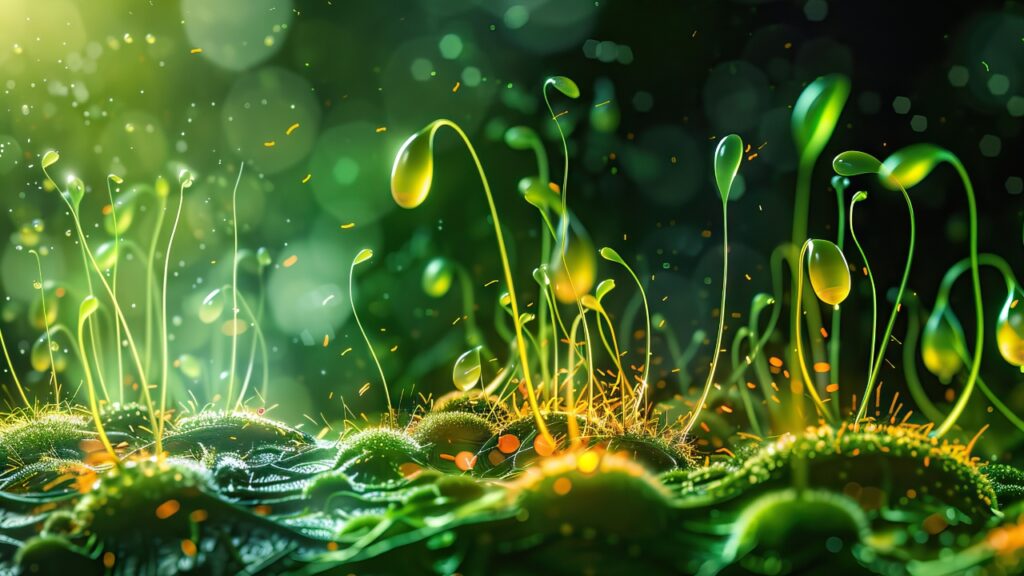 Plant biotechnology has taken center stage as the food and beverage, dietary supplement, and sports nutrition industries explore innovative solutions to produce sustainable and high-quality plant-derived ingredients. In particular, plant cell cultivation—aided by artificial intelligence (AI)—has emerged as a cutting-edge method. This approach allows for the rapid production of bioactives, providing industry players who seek […]
Plant biotechnology has taken center stage as the food and beverage, dietary supplement, and sports nutrition industries explore innovative solutions to produce sustainable and high-quality plant-derived ingredients. In particular, plant cell cultivation—aided by artificial intelligence (AI)—has emerged as a cutting-edge method. This approach allows for the rapid production of bioactives, providing industry players who seek […]
 Ayana Bio opens new laboratory to commercialise cultivated ingredients – July saw plant cell technology company Ayana Bio announce the opening of a new lab situated in Boston’s Seaport district in Massachusetts, US.
Ayana Bio opens new laboratory to commercialise cultivated ingredients – July saw plant cell technology company Ayana Bio announce the opening of a new lab situated in Boston’s Seaport district in Massachusetts, US.
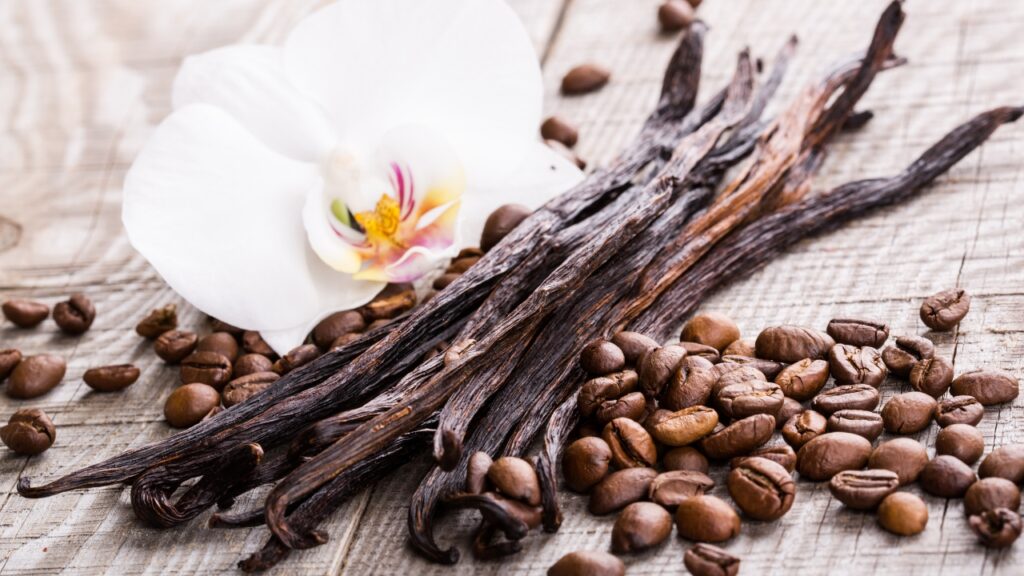 Written by Frank Jaksch, CEO, Ayana Bio Originally published by: Food Industry Executive Throughout history, populations have faced food shortages in response to global events like war, droughts, and famine. During World War I and II, sugar was rationed due to shipping disruptions, and agricultural production turned to different crops. In the early 2000s, Russia’s […]
Written by Frank Jaksch, CEO, Ayana Bio Originally published by: Food Industry Executive Throughout history, populations have faced food shortages in response to global events like war, droughts, and famine. During World War I and II, sugar was rationed due to shipping disruptions, and agricultural production turned to different crops. In the early 2000s, Russia’s […]
 Consumers seek out foods, beverages, and dietary supplements formulated with healthy ingredients found in nature. This demand busts open the door for opportunities with innovative plant-based products—especially ones with known health benefits. Combining nutrigenomics and plant cell cultivation technologies is reshaping how we access health-beneficial compounds (i.e., bioactives) from plants and deploy them in personalized […]
Consumers seek out foods, beverages, and dietary supplements formulated with healthy ingredients found in nature. This demand busts open the door for opportunities with innovative plant-based products—especially ones with known health benefits. Combining nutrigenomics and plant cell cultivation technologies is reshaping how we access health-beneficial compounds (i.e., bioactives) from plants and deploy them in personalized […]
 Ayana Bio opens new laboratory to commercialise cultivated ingredients – July saw plant cell technology company Ayana Bio announce the opening of a new lab situated in Boston’s Seaport district in Massachusetts, US.
Ayana Bio opens new laboratory to commercialise cultivated ingredients – July saw plant cell technology company Ayana Bio announce the opening of a new lab situated in Boston’s Seaport district in Massachusetts, US.
 Ayana Bio opens new laboratory to commercialise cultivated ingredients – July saw plant cell technology company Ayana Bio announce the opening of a new lab situated in Boston’s Seaport district in Massachusetts, US.
Ayana Bio opens new laboratory to commercialise cultivated ingredients – July saw plant cell technology company Ayana Bio announce the opening of a new lab situated in Boston’s Seaport district in Massachusetts, US.
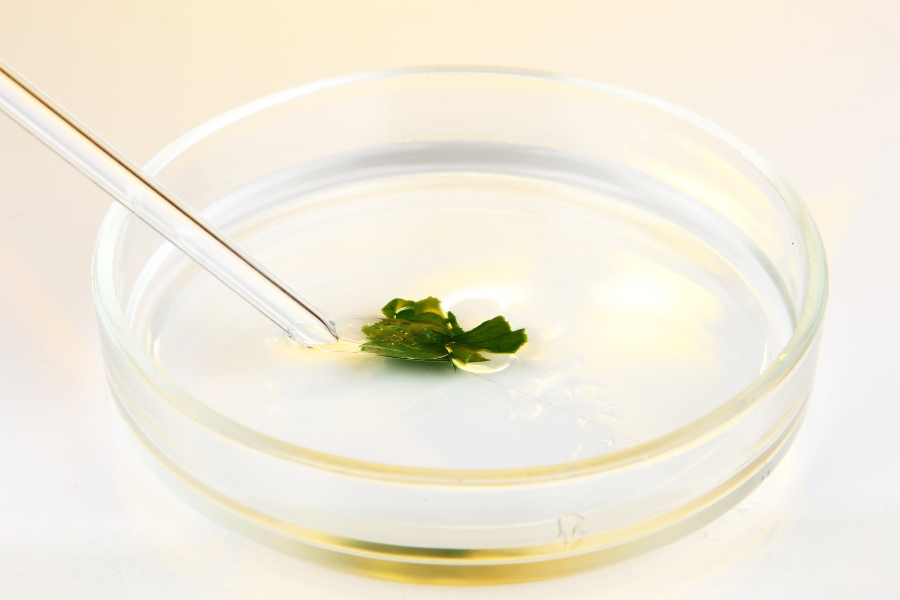 Understanding the Nature of Plant Cell Ingredients Health-conscious consumers are increasingly seeking products that are environmentally friendly and natural. The term “natural” carries significant weight in the dietary supplement, nutraceutical, and functional food industries. But what does “natural” truly mean? And can plant cell ingredients fit this definition? This blog defines “natural” and explores how […]
Understanding the Nature of Plant Cell Ingredients Health-conscious consumers are increasingly seeking products that are environmentally friendly and natural. The term “natural” carries significant weight in the dietary supplement, nutraceutical, and functional food industries. But what does “natural” truly mean? And can plant cell ingredients fit this definition? This blog defines “natural” and explores how […]
 Ayana Bio opens new laboratory to commercialise cultivated ingredients – July saw plant cell technology company Ayana Bio announce the opening of a new lab situated in Boston’s Seaport district in Massachusetts, US.
Ayana Bio opens new laboratory to commercialise cultivated ingredients – July saw plant cell technology company Ayana Bio announce the opening of a new lab situated in Boston’s Seaport district in Massachusetts, US.

 Ayana Bio, the plant cell technology company dedicated to creating sustainable bioactives for consumer products, has received a grant from the National Center for Complementary and Integrative Health (NCCIH), part of the National Institutes of Health (NIH), to support Ayana Bio’s research into the production of saffron’s neuroprotective bioactives through plant cell cultivation.
Ayana Bio, the plant cell technology company dedicated to creating sustainable bioactives for consumer products, has received a grant from the National Center for Complementary and Integrative Health (NCCIH), part of the National Institutes of Health (NIH), to support Ayana Bio’s research into the production of saffron’s neuroprotective bioactives through plant cell cultivation.
 Visit Ayana Bio at SupplySide West, at booth #7071 More details coming soon!
Visit Ayana Bio at SupplySide West, at booth #7071 More details coming soon!



 Processed foods have long been associated with negative health effects, primarily due to the presence of additives and preservatives. However, a recent survey conducted by Ayana Bio, a plant cell technology company, revealed that taste, ingredient quality, and convenience are the primary factors influencing Americans’ choices and willingness to pay more for processed foods. In fact, 74% of the surveyed participants stated that they would try an ultra-processed food if it offered health benefits such as improved sleep, immunity, or energy levels.
Processed foods have long been associated with negative health effects, primarily due to the presence of additives and preservatives. However, a recent survey conducted by Ayana Bio, a plant cell technology company, revealed that taste, ingredient quality, and convenience are the primary factors influencing Americans’ choices and willingness to pay more for processed foods. In fact, 74% of the surveyed participants stated that they would try an ultra-processed food if it offered health benefits such as improved sleep, immunity, or energy levels.


 Taste, ingredient quality and convenience are the most important factors to participants when it comes to choosing and paying more for processed foods, according to a survey of 2,000 American adults conducted by plant cell technology company Ayana Bio.
Taste, ingredient quality and convenience are the most important factors to participants when it comes to choosing and paying more for processed foods, according to a survey of 2,000 American adults conducted by plant cell technology company Ayana Bio.





 Processed foods have long been associated with negative health effects, primarily due to the presence of additives and preservatives. However, a recent survey conducted by Ayana Bio, a plant cell technology company, revealed that taste, ingredient quality, and convenience are the primary factors influencing Americans’ choices and willingness to pay more for processed foods. In fact, 74% of the surveyed participants stated that they would try an ultra-processed food if it offered health benefits such as improved sleep, immunity, or energy levels.
Processed foods have long been associated with negative health effects, primarily due to the presence of additives and preservatives. However, a recent survey conducted by Ayana Bio, a plant cell technology company, revealed that taste, ingredient quality, and convenience are the primary factors influencing Americans’ choices and willingness to pay more for processed foods. In fact, 74% of the surveyed participants stated that they would try an ultra-processed food if it offered health benefits such as improved sleep, immunity, or energy levels.


By using this website, you agree to our legal policy and the storing of cookies on your device to enhance site navigation, analyze site usage, and assist in our marketing efforts. View our Privacy Policy for more information.I ACCEPT
 Food and beverage brands are under growing pressure to replace synthetic dyes and preservatives with clean-label, non-synthetic, and recognizable ingredients. In particular, synthetic antioxidants like Butylated hydroxyanisole (BHA) and Butylated hydroxytoluene (BHT) are receiving increased scrutiny from consumers and regulators. As a result, demand is rising for natural, sustainable ingredients that are both functional and […]
Food and beverage brands are under growing pressure to replace synthetic dyes and preservatives with clean-label, non-synthetic, and recognizable ingredients. In particular, synthetic antioxidants like Butylated hydroxyanisole (BHA) and Butylated hydroxytoluene (BHT) are receiving increased scrutiny from consumers and regulators. As a result, demand is rising for natural, sustainable ingredients that are both functional and […]  Ayana Bio opens new laboratory to commercialise cultivated ingredients – July saw plant cell technology company Ayana Bio announce the opening of a new lab situated in Boston’s Seaport district in Massachusetts, US.
Ayana Bio opens new laboratory to commercialise cultivated ingredients – July saw plant cell technology company Ayana Bio announce the opening of a new lab situated in Boston’s Seaport district in Massachusetts, US.  When it comes to sleep, many people reach for fast fixes like Ambien. But a growing body of evidence shows that sedative drugs may be doing more harm than good, especially for the brain. A 2024 study from the University of Rochester Medical Center found that Ambien (zolpidem) disrupts the brain’s glymphatic system. This system […]
When it comes to sleep, many people reach for fast fixes like Ambien. But a growing body of evidence shows that sedative drugs may be doing more harm than good, especially for the brain. A 2024 study from the University of Rochester Medical Center found that Ambien (zolpidem) disrupts the brain’s glymphatic system. This system […] 
 When we talk about plant cell culture and its promise to transform how we source bioactive ingredients, we often focus on the end products—potent antioxidants, immune-supportive polyphenols, and adaptogens with consistent potency and purity. However, behind every breakthrough plant cell culture ingredient is an invisible yet essential player: the culture medium. At Ayana Bio, we […]
When we talk about plant cell culture and its promise to transform how we source bioactive ingredients, we often focus on the end products—potent antioxidants, immune-supportive polyphenols, and adaptogens with consistent potency and purity. However, behind every breakthrough plant cell culture ingredient is an invisible yet essential player: the culture medium. At Ayana Bio, we […]  For centuries, Salvia officinalis—commonly known as sage—has been used as a traditional medicine to boost memory, reduce inflammation, and support overall wellness. Scientific research confirms that dry sage leaf powder can enhance memory, focus, and mood. These benefits make sage a compelling option for cognitive support in foods, beverages, and dietary supplements. Sage is also […]
For centuries, Salvia officinalis—commonly known as sage—has been used as a traditional medicine to boost memory, reduce inflammation, and support overall wellness. Scientific research confirms that dry sage leaf powder can enhance memory, focus, and mood. These benefits make sage a compelling option for cognitive support in foods, beverages, and dietary supplements. Sage is also […]  Rose hips—the small, vibrant fruits of the dog rose (Rosa canina)—have supported immune health and overall wellness for centuries across Europe, Asia, and the Americas. The awareness of dog rose’s health benefits surged during World War II, when the British government launched a nationwide effort to collect wild rose hips as a substitute for scarce […]
Rose hips—the small, vibrant fruits of the dog rose (Rosa canina)—have supported immune health and overall wellness for centuries across Europe, Asia, and the Americas. The awareness of dog rose’s health benefits surged during World War II, when the British government launched a nationwide effort to collect wild rose hips as a substitute for scarce […] 
 Echinacea purpurea, also known as purple coneflower, is one of the most recognized and widely used botanical ingredients in the world for immune support. Indigenous communities have used this natural botanical ingredient, native to North America, to treat various ailments, from infections to inflammation. Today, it’s a staple in the global supplement market, known for its […]
Echinacea purpurea, also known as purple coneflower, is one of the most recognized and widely used botanical ingredients in the world for immune support. Indigenous communities have used this natural botanical ingredient, native to North America, to treat various ailments, from infections to inflammation. Today, it’s a staple in the global supplement market, known for its […]  Visit Ayana Bio at the IFT First 2025, Chicago, July 13-16, 2025 South Building, Start Up Pavilion Booth S3470V
Visit Ayana Bio at the IFT First 2025, Chicago, July 13-16, 2025 South Building, Start Up Pavilion Booth S3470V  Plant cell sage and lemon balm are a natural way to support stress relief and cognitive health benefits. Used in traditional medicine for centuries, sage and lemon balm are recognized as both nootropics and adaptogens. They are popular ingredients in functional foods, supplements, and wellness products. However, conventional supply chains for sage and lemon balm […]
Plant cell sage and lemon balm are a natural way to support stress relief and cognitive health benefits. Used in traditional medicine for centuries, sage and lemon balm are recognized as both nootropics and adaptogens. They are popular ingredients in functional foods, supplements, and wellness products. However, conventional supply chains for sage and lemon balm […]  The Future Food-Tech summit in San Francisco (March 13-14) brought together industry leaders, entrepreneurs, and researchers to discuss the future of food innovation. While many of the conversations reinforced known trends—such as the demand for more sustainable food systems, ingredient innovation, and the power of AI to accelerate R&D—this year’s event surfaced new insights and […]
The Future Food-Tech summit in San Francisco (March 13-14) brought together industry leaders, entrepreneurs, and researchers to discuss the future of food innovation. While many of the conversations reinforced known trends—such as the demand for more sustainable food systems, ingredient innovation, and the power of AI to accelerate R&D—this year’s event surfaced new insights and […]  Saffron, often referred to as “red gold,” is one of the most prized spices in the world. Saffron is valued not just for its unique aroma and flavor used in culinary, nutraceutical, and cosmetic applications, but also for its powerful bioactive ingredients. From ancient traditions to modern wellness formulations, saffron’s bioactives (e.g., crocin, picrocrocin, and […]
Saffron, often referred to as “red gold,” is one of the most prized spices in the world. Saffron is valued not just for its unique aroma and flavor used in culinary, nutraceutical, and cosmetic applications, but also for its powerful bioactive ingredients. From ancient traditions to modern wellness formulations, saffron’s bioactives (e.g., crocin, picrocrocin, and […] 
 The nutrient density of crops is declining. Climate change and intensive agricultural practices are reshaping food production, leading to crops that are less nutritious than those of past decades. Industrial agriculture, focused on producing larger and more visually appealing fruits and vegetables, has further accelerated this decline. The challenge now is clear: How do we […]
The nutrient density of crops is declining. Climate change and intensive agricultural practices are reshaping food production, leading to crops that are less nutritious than those of past decades. Industrial agriculture, focused on producing larger and more visually appealing fruits and vegetables, has further accelerated this decline. The challenge now is clear: How do we […]  Plant cell-derived bioactives that improve health and wellness have taken center stage in the dietary supplement and food and beverage industries. The true power of these natural compounds lies not in a single, isolated molecule but in their collective synergy. This phenomenon, known as the entourage effect, emphasizes how consuming bioactives in their natural, full-spectrum […]
Plant cell-derived bioactives that improve health and wellness have taken center stage in the dietary supplement and food and beverage industries. The true power of these natural compounds lies not in a single, isolated molecule but in their collective synergy. This phenomenon, known as the entourage effect, emphasizes how consuming bioactives in their natural, full-spectrum […]  Visit Ayana Bio at the Future Food-Tech, San Francisco, March 13-14, 2025 Come to see Frank Jaksch, Ayana Bio’s CEO, speak on the panel: Health Through Stealth: Enhancing Nutritional Density through Reformulation, Fortification & Bioactives Friday, March 14, 9:45 – 10:30
Visit Ayana Bio at the Future Food-Tech, San Francisco, March 13-14, 2025 Come to see Frank Jaksch, Ayana Bio’s CEO, speak on the panel: Health Through Stealth: Enhancing Nutritional Density through Reformulation, Fortification & Bioactives Friday, March 14, 9:45 – 10:30  The dietary supplement industry is experiencing significant growth fueled by a surge in consumer demand for high-quality, sustainable, and nutrient-rich products. The US dietary supplement market was valued at $53.58 billion in 2023 and is projected to grow at a compound annual growth rate (CAGR) of 5.7% over the next five years as consumers increasingly […]
The dietary supplement industry is experiencing significant growth fueled by a surge in consumer demand for high-quality, sustainable, and nutrient-rich products. The US dietary supplement market was valued at $53.58 billion in 2023 and is projected to grow at a compound annual growth rate (CAGR) of 5.7% over the next five years as consumers increasingly […]  Ultra-processed foods (UPFs) dominate global diets and account for 57% of daily calories consumed by the average American, according to The British Medical Journal. The popularity of these highly processed foods can be attributed to their convenience, affordability, and extended shelf life. But UPFs often lack essential nutrients and are linked with health issues such […]
Ultra-processed foods (UPFs) dominate global diets and account for 57% of daily calories consumed by the average American, according to The British Medical Journal. The popularity of these highly processed foods can be attributed to their convenience, affordability, and extended shelf life. But UPFs often lack essential nutrients and are linked with health issues such […]  Consumers are demanding ethically sourced nutraceuticals: products that promote health and wellness without harming growers or the environment. As such, the nutraceutical industry has faced increasing pressure to adopt sustainable practices. Companies that prioritize sustainability— through ethical sourcing, green production, and advanced technologies—stand out in this competitive and evolving market. What Are Nutraceuticals? Nutraceuticals are […]
Consumers are demanding ethically sourced nutraceuticals: products that promote health and wellness without harming growers or the environment. As such, the nutraceutical industry has faced increasing pressure to adopt sustainable practices. Companies that prioritize sustainability— through ethical sourcing, green production, and advanced technologies—stand out in this competitive and evolving market. What Are Nutraceuticals? Nutraceuticals are […]  Ayana Bio opens new laboratory to commercialise cultivated ingredients – July saw plant cell technology company Ayana Bio announce the opening of a new lab situated in Boston’s Seaport district in Massachusetts, US.
Ayana Bio opens new laboratory to commercialise cultivated ingredients – July saw plant cell technology company Ayana Bio announce the opening of a new lab situated in Boston’s Seaport district in Massachusetts, US.  Companies are turning to more advanced production methods as the demand for sustainable, unadulterated, and consistent botanical ingredients grows. Plant cell cultivation and precision fermentation have emerged as leading technologies, each with unique benefits. However, plant cell culture stands out for its key advantages, including the ability to deliver full-spectrum bioactives in a more sustainable […]
Companies are turning to more advanced production methods as the demand for sustainable, unadulterated, and consistent botanical ingredients grows. Plant cell cultivation and precision fermentation have emerged as leading technologies, each with unique benefits. However, plant cell culture stands out for its key advantages, including the ability to deliver full-spectrum bioactives in a more sustainable […]  Ayana Bio, the plant cell technology company dedicated to creating sustainable bioactives for consumer products, has received a grant from the National Center for Complementary and Integrative Health (NCCIH), part of the National Institutes of Health (NIH), to support Ayana Bio’s research into the production of saffron’s neuroprotective bioactives through plant cell cultivation.
Ayana Bio, the plant cell technology company dedicated to creating sustainable bioactives for consumer products, has received a grant from the National Center for Complementary and Integrative Health (NCCIH), part of the National Institutes of Health (NIH), to support Ayana Bio’s research into the production of saffron’s neuroprotective bioactives through plant cell cultivation.  Plant biotechnology has taken center stage as the food and beverage, dietary supplement, and sports nutrition industries explore innovative solutions to produce sustainable and high-quality plant-derived ingredients. In particular, plant cell cultivation—aided by artificial intelligence (AI)—has emerged as a cutting-edge method. This approach allows for the rapid production of bioactives, providing industry players who seek […]
Plant biotechnology has taken center stage as the food and beverage, dietary supplement, and sports nutrition industries explore innovative solutions to produce sustainable and high-quality plant-derived ingredients. In particular, plant cell cultivation—aided by artificial intelligence (AI)—has emerged as a cutting-edge method. This approach allows for the rapid production of bioactives, providing industry players who seek […]  Ayana Bio opens new laboratory to commercialise cultivated ingredients – July saw plant cell technology company Ayana Bio announce the opening of a new lab situated in Boston’s Seaport district in Massachusetts, US.
Ayana Bio opens new laboratory to commercialise cultivated ingredients – July saw plant cell technology company Ayana Bio announce the opening of a new lab situated in Boston’s Seaport district in Massachusetts, US.  Written by Frank Jaksch, CEO, Ayana Bio Originally published by: Food Industry Executive Throughout history, populations have faced food shortages in response to global events like war, droughts, and famine. During World War I and II, sugar was rationed due to shipping disruptions, and agricultural production turned to different crops. In the early 2000s, Russia’s […]
Written by Frank Jaksch, CEO, Ayana Bio Originally published by: Food Industry Executive Throughout history, populations have faced food shortages in response to global events like war, droughts, and famine. During World War I and II, sugar was rationed due to shipping disruptions, and agricultural production turned to different crops. In the early 2000s, Russia’s […]  Consumers seek out foods, beverages, and dietary supplements formulated with healthy ingredients found in nature. This demand busts open the door for opportunities with innovative plant-based products—especially ones with known health benefits. Combining nutrigenomics and plant cell cultivation technologies is reshaping how we access health-beneficial compounds (i.e., bioactives) from plants and deploy them in personalized […]
Consumers seek out foods, beverages, and dietary supplements formulated with healthy ingredients found in nature. This demand busts open the door for opportunities with innovative plant-based products—especially ones with known health benefits. Combining nutrigenomics and plant cell cultivation technologies is reshaping how we access health-beneficial compounds (i.e., bioactives) from plants and deploy them in personalized […]  Ayana Bio opens new laboratory to commercialise cultivated ingredients – July saw plant cell technology company Ayana Bio announce the opening of a new lab situated in Boston’s Seaport district in Massachusetts, US.
Ayana Bio opens new laboratory to commercialise cultivated ingredients – July saw plant cell technology company Ayana Bio announce the opening of a new lab situated in Boston’s Seaport district in Massachusetts, US.  Understanding the Nature of Plant Cell Ingredients Health-conscious consumers are increasingly seeking products that are environmentally friendly and natural. The term “natural” carries significant weight in the dietary supplement, nutraceutical, and functional food industries. But what does “natural” truly mean? And can plant cell ingredients fit this definition? This blog defines “natural” and explores how […]
Understanding the Nature of Plant Cell Ingredients Health-conscious consumers are increasingly seeking products that are environmentally friendly and natural. The term “natural” carries significant weight in the dietary supplement, nutraceutical, and functional food industries. But what does “natural” truly mean? And can plant cell ingredients fit this definition? This blog defines “natural” and explores how […] 
 Ayana Bio, the plant cell technology company dedicated to creating sustainable bioactives for consumer products, has received a grant from the National Center for Complementary and Integrative Health (NCCIH), part of the National Institutes of Health (NIH), to support Ayana Bio’s research into the production of saffron’s neuroprotective bioactives through plant cell cultivation.
Ayana Bio, the plant cell technology company dedicated to creating sustainable bioactives for consumer products, has received a grant from the National Center for Complementary and Integrative Health (NCCIH), part of the National Institutes of Health (NIH), to support Ayana Bio’s research into the production of saffron’s neuroprotective bioactives through plant cell cultivation.  Visit Ayana Bio at SupplySide West, at booth #7071 More details coming soon!
Visit Ayana Bio at SupplySide West, at booth #7071 More details coming soon! 


 Processed foods have long been associated with negative health effects, primarily due to the presence of additives and preservatives. However, a recent survey conducted by Ayana Bio, a plant cell technology company, revealed that taste, ingredient quality, and convenience are the primary factors influencing Americans’ choices and willingness to pay more for processed foods. In fact, 74% of the surveyed participants stated that they would try an ultra-processed food if it offered health benefits such as improved sleep, immunity, or energy levels.
Processed foods have long been associated with negative health effects, primarily due to the presence of additives and preservatives. However, a recent survey conducted by Ayana Bio, a plant cell technology company, revealed that taste, ingredient quality, and convenience are the primary factors influencing Americans’ choices and willingness to pay more for processed foods. In fact, 74% of the surveyed participants stated that they would try an ultra-processed food if it offered health benefits such as improved sleep, immunity, or energy levels. 